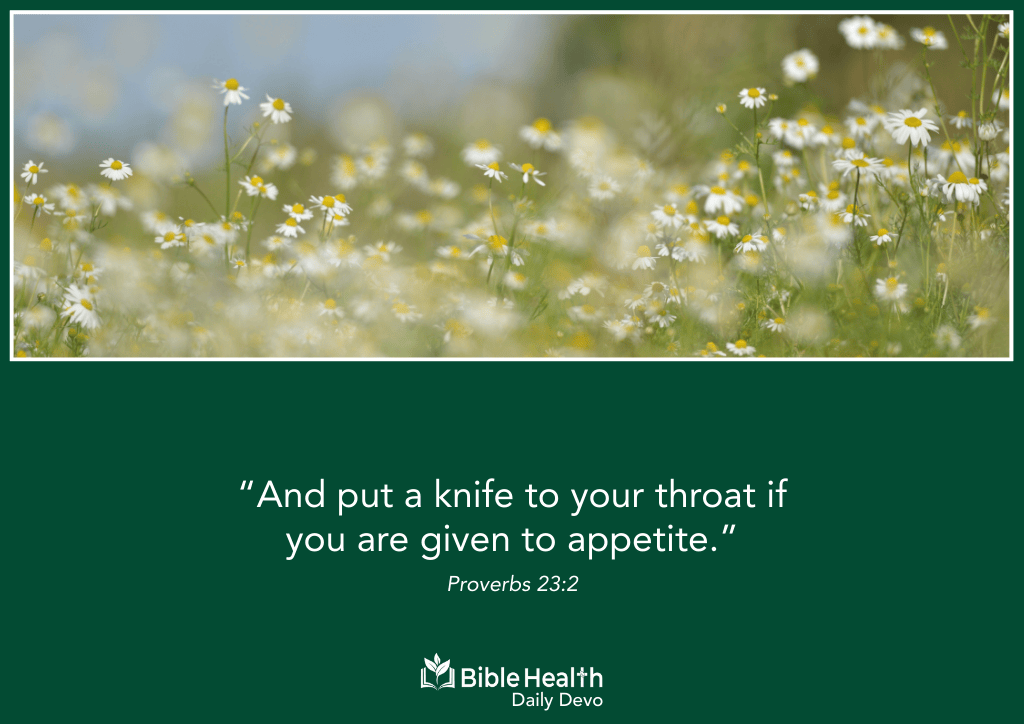~ Proverbs 23:2
Subscribe to this podcast on iTunes | Spotify
Proverbs often uses vivid imagery to shock us into wisdom, and Proverbs 23:2 is no exception. The picture is stark: if you are tempted to overindulge, treat it as seriously as if your very life were at risk. Gluttony is not harmless. It is a matter of life, discipline, and holiness.
The Hebrew word for “appetite” here is nephesh, which also means “soul” or “life.” It reminds us that unchecked appetites don’t just affect the stomach—they affect the soul. What we crave has the power to shape who we become.
In church culture today, we often call out certain sins, sexual immorality, substance abuse, dishonesty but gluttony is the “acceptable sin.” Potlucks overflow, overeating is normalized, and food is often used for comfort or fellowship without much thought to self-control. Yet the Bible treats gluttony seriously. In Proverbs 23:20–21, gluttons are grouped with drunkards: “For the drunkard and the glutton will come to poverty, and slumber will clothe them with rags.” Both are forms of overindulgence that dull the spirit and damage the body.
Why is gluttony so dangerous? Because it is a subtle idol. It replaces self-control with craving, and it can turn food God’s gift for nourishment and joy into a master we serve. Paul warns in Philippians 3:19 of those “whose god is their belly, and they glory in their shame, with minds set on earthly things.” When appetite rules us, it reveals where our worship is misplaced.
This has direct implications for the biblical health message. Gluttony leads to broken health, wasted resources, and dulled sensitivity to the Spirit. It is not simply a private matter—it affects our ability to serve, to witness, and to live abundantly. By contrast, Spirit-led discipline in eating not only strengthens the body but also trains the soul in self-control, one of the fruits of the Spirit (Gal. 5:23).
But the good news is that God’s grace reaches even here. The answer is not starvation or shame but surrender—asking the Lord to rule our appetites as we learn to delight in Him above all. Just as fasting trains us to hunger more for God, wise eating trains us to see food as a servant, not a master.
So ask yourself: am I given to appetite? Do I use food for comfort more than I turn to God? Have I excused gluttony as “no big deal” when Scripture treats it with seriousness? The wisdom of Proverbs is clear: take it seriously, as though your life depends on it—for in many ways, it does.
Prayer: Lord, forgive me for the times I have let appetite rule me. Teach me to honor You with my body and to see food as a gift, not a master. Give me wisdom and self-control, so that I may glorify You in all I eat and drink. Amen.




